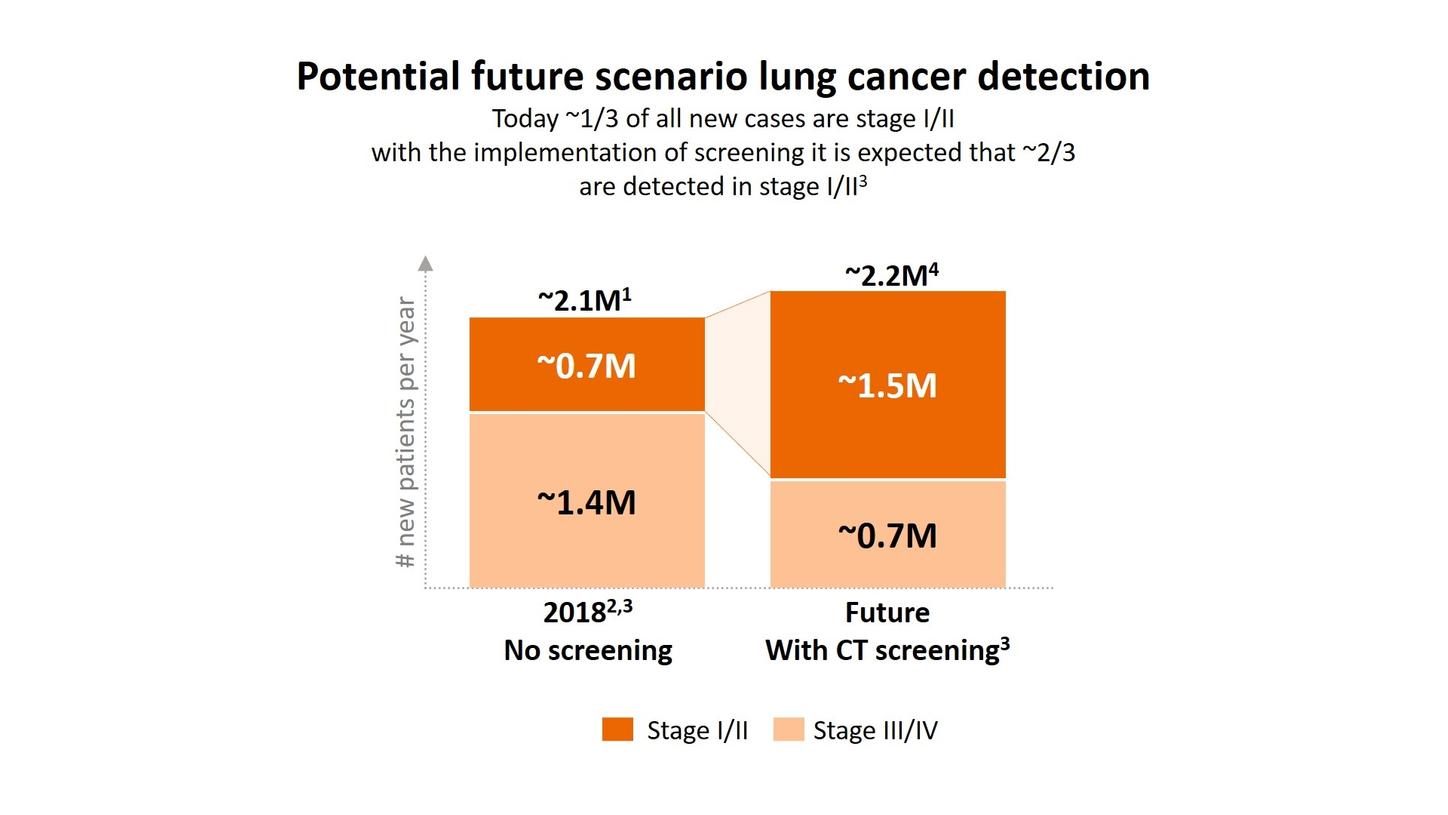
Cios Spin in endobronchial interventionsHow a mobile CBCT system can address your clinical and cost challenges
Is your pulmonology practice changing to meet safety and efficiency demands? If not, you may need to consider how you will handle three immediate challenges:
Bray et al. Global Cancer Statistics 2018;0:1-31.
National Cancer Institute. Cancer stat facts: Lung & bronchus cancer, SEER 18 2010-2016.
National Lung Screening Trial Research Team. N Engl J Med 2011;365:395-409.
Assumed combined population and GDP growth ~5%, The World Bank, World development indicators.
Hohenforst-Schmidt, W., Zarogoulidis, P., Vogl, T., Turner, J. F., Browning, R., Linsmeier, B., . . . Brachmann, J. (2014). Cone Beam Computertomography (CBCT) in Interventional Chest Medicine - High Feasibility for Endobronchial Realtime Navigation. Journal of Cancer, 5(3), 231-241. doi:10.7150/jca.8834
Ng, C. S., Yu, S. C., Lau, R. W., & Yim, A. P. (2015). Hybrid DynaCT-guided electromagnetic navigational bronchoscopic biopsy. European Journal of Cardio-Thoracic Surgery. doi:10.1093/ejcts/ezv405
U.S. National Institute Of Health, National Cancer Institute. SEER Cancer Statistics Review, 1975–2015
Casal, R. F., Sarkiss, M., Jones, A. K., Stewart, J., Tam, A., Grosu, H. B., . . . Eapen, G. A. (2018). Cone beam computed tomography-guided thin/ultrathin bronchoscopy for diagnosis of peripheral lung nodules: A prospective pilot study. Journal of Thoracic Disease, 10(12), 6950-6959. doi:10.21037/jtd.2018.11.21
Park, S. C., Kim, C. J., Han, C. H., & Lee, S. M. (2017). Factors associated with the diagnostic yield of computed tomography-guided transbronchial lung biopsy. Thoracic Cancer, 8(3), 153-158. doi:10.1111/1759-7714.12417
Avasarala, S. K., Machuzak, M. S., & Gildea, T. R. (2020). Multidimensional Precision. Journal of Bronchology & Interventional Pulmonology, 27(2), 153-155. doi:10.1097
Aberle et al. N Engl J Med 2013;369(10):920-931
de Koning et al. NELSON trial. N Engl J Med 2020;382(6):503-513
Kauczor et al. ESR/ERS statement paper on lung cancer screening. Eur Respir J 2020; 55: 1900506
U.S. National Institute Of Health, National Cancer Institute. SEER Cancer Statistics Review, 1975–2015
Best et al. Surgery 2020;168:962e967
Kalchiem-Dekel et al. Respirology 2020









